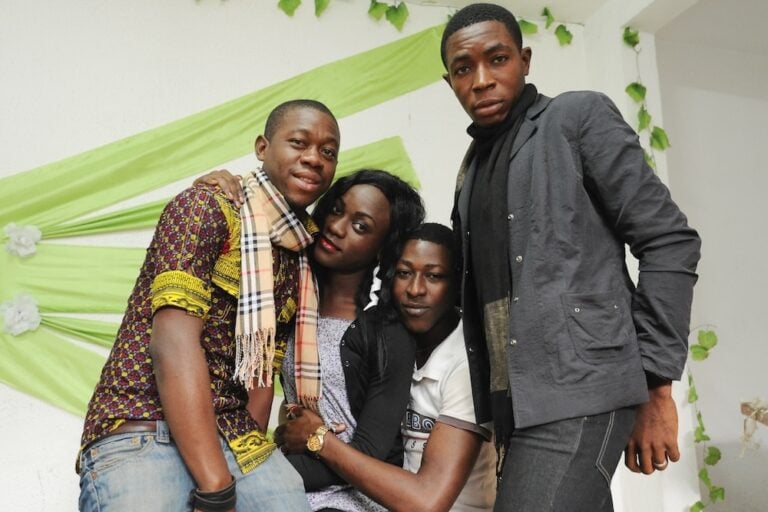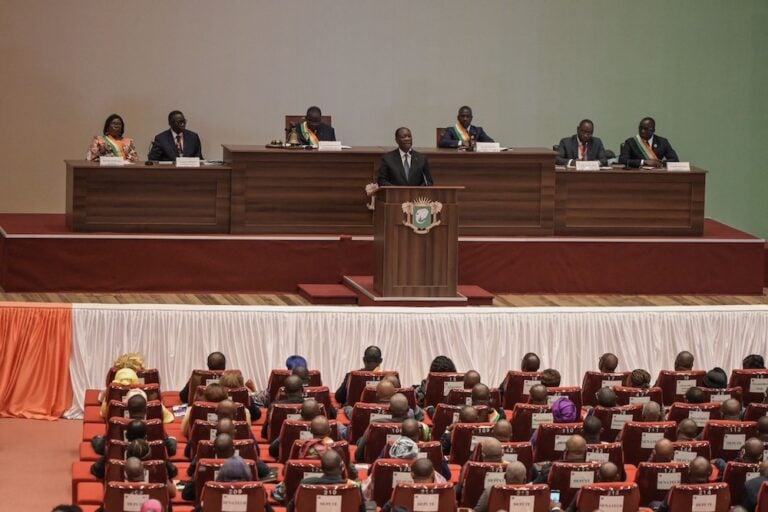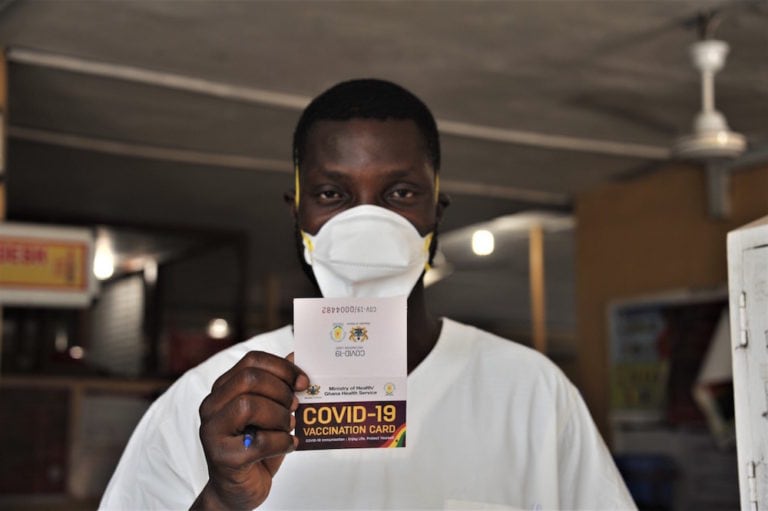(CPJ/IFEX) – In a 28 June 2000 letter to President Robert Gueï, CPJ expressed its grave concern about his regime’s plans to tighten state control over the press in Côte d’Ivoire. According to CPJ’s sources in Abidjan, Information Minister Captain Henri Cesar Sama announced on 23 June that the ruling National Public Salvation Committee (CNSP) […]
(CPJ/IFEX) – In a 28 June 2000 letter to President Robert Gueï, CPJ expressed its grave concern about his regime’s plans to tighten state control over the press in Côte d’Ivoire.
According to CPJ’s sources in Abidjan, Information Minister Captain Henri Cesar Sama announced on 23 June that the ruling National Public Salvation Committee (CNSP) would soon release a list of measures designed to block the publication of any information “likely to negatively affect the credibility of journalists, national security and social peace.”
Captain Sama, who replaced journalist Levy Niamkey as information minister on 19 May, called on journalists to refrain from becoming “the extended arm of politicians with dubious goals.” The minister added that he “would not hesitate to make use of the law which provides a spate of punishments for journalists who deliberately … compromise national security.”
Hours after the Information Ministry released Captain Sama’s statement, the state-operated Radiodiffusion Television Ivoirienne (RTI) network pulled a TV commercial for the opposition Rally of Republicans (RDR) party off the air on the grounds that it contained snatches of “misleading, mystic and Nazi” music. Ivorian journalists contacted by CPJ, however, said the commercial in question contained no music at all, but did show RDR leader Allassane Ouattara addressing a crowd of supporters in a stadium.
CPJ believes that if the government carries out this ill-considered plan, censorship will soon be institutionalized in Côte d’Ivoire. President Gueï has announced plans to hold general elections in the fall of 2000. In light of Captain Sama’s statement, however, CPJ is concerned that journalists will be prevented from freely covering these elections, thus reducing the chances that the Ivorian people will be able to make an informed electoral choice.
When President Gueï seized power last December, he vowed that “press freedom will be total” in Côte d’Ivoire. Today, his government ranks among Africa’s worst press freedom offenders. In the past six months, twenty-one journalists have been beaten, harassed, or illegally detained, according to CPJ’s research. Soldiers under his command have raided local newsrooms, and detained and tortured reporters accused of bias against the president or other military and state officials.
On 9 April, in one of the most disturbing cases documented by CPJ, two soldiers kidnapped reporter Jules Toualy of the private daily “Le Jeune Democrate” and tortured him for several hours. The attack resulted from an 8 April article in which Toualy alleged that six foreign mercenaries had been arrested for helping to instigate a 28 March mutiny at a military base in Daloa, eighty miles northwest of Abidjan, with the goal of overthrowing President Gueï’s regime (see IFEX alert of 14 April 2000).
Most recently, on 16 May, soldiers abducted two reporters and a female photographer from the daily “La Reference” and drove them to the junta’s headquarters, where they were beaten and made to perform push-ups for several hours. This treatment was apparently meted out in reprisal for an article in the 12 May issue of “La Reference” that accused President Gueï’s wife of using state funds to cover costs for her personal trips (see IFEX alert of 17 May 2000).
Recommended Action
Send appeals to the president:
– stating that, in light of the information minister’s 23 June statement, you fear that state-sponsored press freedom violations are becoming the norm in Côte d’Ivoire, in clear disregard for Article 19 of the Universal Declaration of Human Rights, which grants all people, including journalists, the right to free expression
– urging His Excellency to give public assurances that the measures announced by Captain Sama will not be implemented, and that all journalists in Côte d’Ivoire will be able to work freely without fear of reprisal
Appeals To
APPEALS TO:
President Robert Gueï
La Primature
Abidjan, Côte d’Ivoire
Fax: +225 20 32 90 77
Please copy appeals to the source if possible.


